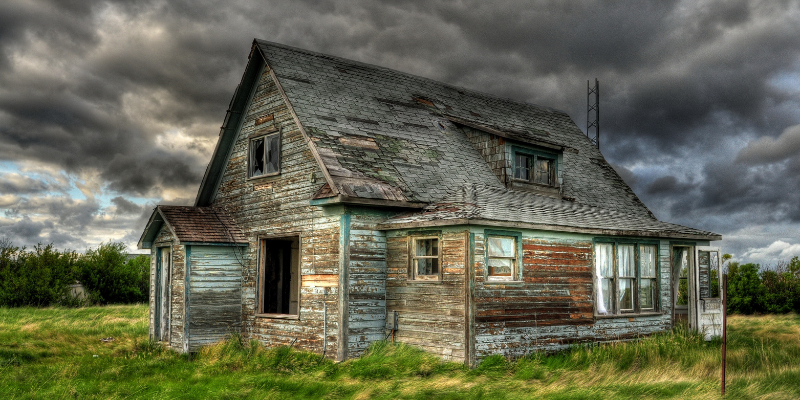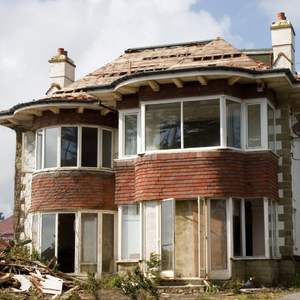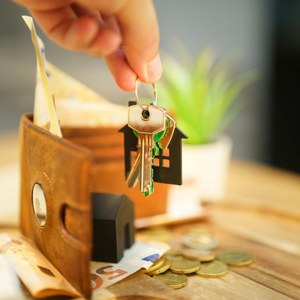
Despite its difficulty, selling a condemned house in North Carolina is possible with the right approach. This guide will help you handle condemned properties, address legal issues, and maximize profits. Whatever your needs, Zack Buys Houses can help you navigate local laws and alternative selling methods. Find expert advice and actionable advice for North Carolina homeowners ready to sell condemned real estate, ensuring a successful transaction.
Brief Overview
Selling a condemned North Carolina home requires legal maneuvering and strategic selling. Understanding state safety regulations and condemned property implications is crucial. Homes must be renovated for market value or sold as-is, usually to We buy houses in North Carolina and nearby cities with redevelopment potential. Successful marketing emphasizes location benefits and transparent pricing to attract buyers. Learning from past sales and working with real estate and legal professionals can turn property issues into profitable opportunities and ensure a smooth transaction.
Key Highlights
- Understand property condemnation laws in North Carolina to navigate legal hurdles effectively.
- Explore renovation vs. selling options to evaluate the most feasible financial strategy.
- Engage marketing strategies targeting investors interested in fixer-upper opportunities.
- Leverage successful case studies to guide your approach for selling condemned properties.
- Ensure transparency with clear disclosures to avoid legal complications during the sale.
Understanding a Condemned House in North Carolina

Any North Carolina property owner selling a condemned house must understand property condemnation. State laws determine when a house is unfit for residence, which affects its marketability and sales options. Why homes are condemned and what it means can help property owners navigate the condemnation process and make smart real estate investments. Discover what causes North Carolina houses to be condemned and why.
Why Does a Condemned Home Matter?
A North Carolina condemned home is uninhabitable due to serious safety or health issues. Local authorities require repairs or restrict habitation due to structural hazards.
Owners suffer financially and legally from condemnation. Without building code repairs, such homes cannot be sold or lived in, requiring significant investment. Declining market value limits traditional sales.
Understanding condemnation is key to selling. Partners or rehab investors may buy distressed properties “as-is” from owners. Rapid action protects financial interests and community interests.
| Reason for Condemnation | Description | Impact on Property |
|---|---|---|
| Structural Damage | Severe issues with the foundation, roof, or walls | Reduces safety and longevity |
| Health Hazards | Presence of mold, asbestos, or pests | Poses risks to human health |
| Electrical Problems | Faulty wiring, outdated systems | Increases risk of fire hazards |
| Plumbing Issues | Leaking pipes, poor water quality | Causes water damage, mold growth |
| Code Violations | Non-compliance with local building codes | Legal and safety repercussions |
The table breaks down North Carolina’s main house condemnation reasons. Structural damage, health risks, and code violations are highlighted. Property owners can prevent condemnation and keep their homes safe and compliant by understanding these factors.
Common Reasons for House Condemnation in North Carolina
North Carolina houses with unsafe foundations or roofs are often condemned. Residents are at risk, and property values can drop, so fixes are needed quickly.
Sanitation and utilities issues also cause problems. Homes without water, electricity, or sewage systems are unsafe and attract pests, prompting state inspections and condemnation.
Condemnation includes water and fire damage. Floods, mold, and fires can make a home unsafe, requiring extensive repairs. Owners can avoid these issues and protect their investments with regular inspections and maintenance.
Property owners should take several precautions to avoid house condemnation.
- Regularly maintain roofs, plumbing, and electrical systems to avoid structural damage.
- Pest infestations should be addressed immediately to prevent property damage.
- Check for and fix property safety hazards periodically.
- Follow local building codes to comply with laws.
- Repair wall and foundation cracks immediately to prevent further damage.
- Overgrowth can cause structural damage and vermin, so maintain landscaping.
- Install smoke and CO detectors for property safety.
- Upgrade any broken HVAC systems.
- Keep the property tidy to avoid pests.
- To comply with local laws, get renovation permits.
These precautions help owners protect their properties and make neighborhoods safer.
Exploring Your Options for a Condemned Property

To sell a condemned property in North Carolina, you must use multiple strategies. Always consider all options, from legal issues to renovation vs. selling as-is. The decision may affect homeowners’ finances and plans. Understanding condemned property law and weighing repairs versus a direct sale is crucial. Sellers analyze each option to match market opportunities and personal circumstances.
Legal Aspects: What the Law Says About Selling
Understanding North Carolina laws is necessary to sell a condemned property. To avoid issues, potential buyers must be informed of the condemned status before buying a property with health or safety hazards.
Experienced attorneys are needed to ensure state law compliance in contracts, negotiations, and legal obligations. Their advice safeguards the seller and streamlines the transaction.
Taxes and compensation are important too. If properties are in development projects, sellers should consult tax advisors and municipal programs. Effective legal preparation protects sellers, ensures compliance, and maximizes profits.
Renovation vs. Selling: Which is More Feasible?
Choosing between renovating and selling a condemned house requires weighing costs, time, and potential returns.
| Factor | Renovation | Selling “As-Is” |
|---|---|---|
| Cost | High; includes structural, utility, and safety upgrades | Low; no repair expenses required |
| Time | Long; can take months or longer | Short; transaction can close quickly |
| Potential Value | Higher resale value after completion | Lower sale price, but immediate cash |
| Effort | Significant involvement, planning, permits, and oversight are needed | Minimal; hand off property to investor or buyer |
| Risk | Buyers may negotiate steep discounts | Buyer may negotiate steep discounts |
| Buyer Type | Market buyers or investors after rehab | Cash buyers, investors, or companies purchasing as-is |
| Legal/Compliance | Must meet building codes and condemnation requirements | Fewer obligations; buyer assumes repair responsibility |
By carefully evaluating these factors, property owners can choose the option that best fits their goals and circumstances.
How To Attract Buyers for a Condemned Property

North Carolina’s condemned property sales can be difficult, but with the right approach, you can attract buyers and get good offers. To attract buyers, this section will discuss how to improve a condemned house. Marketing tips to highlight a condemned property’s unique features, innovative ways to attract buyers, and strategic pricing to generate cash offers will be covered. Property owners will learn how to sell a condemned house by the end.
How to Sell a Condemned Home
Selling a condemned home successfully requires effective marketing and precise audience targeting, often with the intent to sell the property at a price below market value to attract serious investors. Focus on cash buyers and real estate investors for whom a fixer-upper represents a strong investment opportunity. Highlight the home’s location and its potential for value appreciation within the greater Charlotte area. Position the property primarily as an investment and redevelopment opportunity to emphasize future gains rather than current condition.
Increasing your reach can be done through online platforms, social media, and local investment clubs. Well-captured pictures, virtual tours, and even 3D modeling/printing can assist buyers in visualizing the home and inspire a transformation. Describe the property in terms of investment “potential” or “renovation opportunity,” not explaining the home’s features.
Having a competitive price with strategic price points works. Include estimates for the purchase price and anticipated cost for renovations to align with the potential selling price and the anticipated profit. Consider offering seller financing or lease-purchase options as that makes selling easier. Closing references gathered from previous renovations help with trust and showing potential profit are recommendations that help in selling.
Case Studies: Successful Sales of Condemned Properties in North Carolina
North Carolina’s condemned property sales success stories can help homeowners in similar situations. These case studies demonstrate how strategic planning, market understanding, and negotiation can overcome challenges associated with selling condemned houses. By analyzing factors that led to successful sales and working with investor home buyers in Charlotte and nearby cities, property owners can turn a burdensome property into a profitable sale.
Lessons Learned from Previous Sales
Successful North Carolina condemned property sales can be learned from past sales. In cities like Charlotte, listing during high buyer interest yielded better results. Sales that matched local real estate cycles were faster and more competitive.
Also important was targeted marketing. Despite structural issues, investors were drawn to a property’s location, redevelopment potential, and proximity to growing neighborhoods. Competitive pricing that included repairs reset expectations and encouraged serious offers, simplifying negotiations.
Additional lessons included legal readiness and value proof. Checking paperwork and municipal requirements reassured buyers and accelerated sales. Case studies of renovated condemned properties showed potential returns, built trust, and reduced investment risks, increasing the likelihood of a sale.
Although difficult, selling a condemned house in North Carolina is possible with the right knowledge and approach. Owners can streamline the selling process by understanding local regulations, making strategic repairs, and working with experienced cash buyers. To avoid legal issues, property valuations and disclosures must be accurate. Use local housing authorities and investment firms to boost property sales and value. These tips can help you sell your condemned property. For customized guidance, contact Zack Buys Houses today.
Need to sell a condemned house fast? Zack Buys Houses offers fair cash offers, handles all the details, and makes the process hassle-free. Call 704-769-0141 for a no-obligation offer today!
FAQs
What is a condemned house in North Carolina?
A condemned North Carolina house is uninhabitable due to safety and health violations. When structures fail, occupants and neighbors are at risk. Local governments condemn these properties for public safety.
What are common reasons for house condemnation in North Carolina?
Structural issues, lack of water and electricity, extensive water or fire damage, and unsanitary living conditions are common reasons. Health risks and property values decrease due to these factors.
What legal considerations should be addressed when selling a condemned house in North Carolina?
Selling must comply with state laws, disclose condemned status to buyers, and fix safety hazards. Experienced attorneys are needed to ensure legal compliance and protect the seller’s interests.
Should you renovate or sell a condemned house as-is in North Carolina?
Consider repair feasibility and post-renovation market value. Remodeling boosts value but costs a lot. As-is sales attract investors and give a quick, low price. The owner’s financial outlook and urgency should guide each choice.
How can effective marketing attract buyers to a condemned property?
Focus on location and investment returns to attract investors. Price competitively to accentuate structural issues and redevelopment opportunities. Quality visuals and transparency can boost buyer interest and sales.
Helpful North Carolina Blog Articles
- Selling Your Investment Property in North Carolina
- Selling Your North Carolina Home With An Existing Mortgage
- How To Successfully Sell A House With Tenants In North Carolina
- Appraisal Repairs in NC: How They Impact Your Home Sale
- Documents Required to Sell a House in North Carolina
- Closing Costs Without a Realtor in North Carolina
- Filing A Quitclaim Deed For Real Estate In North Carolina
- Real Estate Division In North Carolina Divorce Cases
- Selling Your North Carolina Home Without A Real Estate Agent
- Who Pays the HOA Fees at Closing in North Carolina
- How to Sell a Condemned House in North Carolina
- How to Sell a House As-Is in North Carolina
- Does a Seller Pay Closing Costs in North Carolina
- Can You Sell a House That Failed Inspection in North Carolina
- Lease Options to Sell Your North Carolina Home

